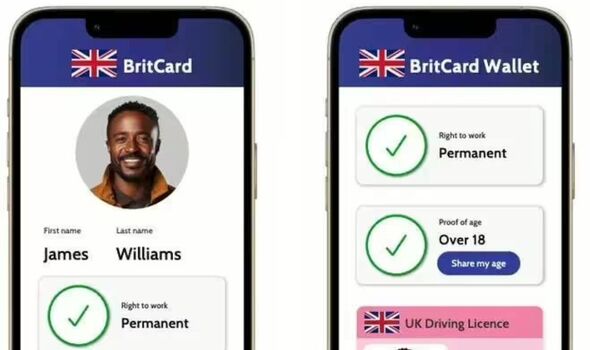

Sir Keir Starmer will on Friday unveil hugely controversial plans for mandatory digital ID cards, dubbed “BritCards,” for all UK adults as part of a strategy to tackle illegal migration. The announcement, expected during his speech at the Global Progress Action Summit in London alongside Australian Prime Minister Anthony Albanese and Canadian Prime Minister Mark Carney, marks a significant policy shift aimed at curbing the “shadow economy” and reducing illegal working.
While the cards are not explicitly compulsory, they will be required for essential activities such as starting a new job or renting a home, effectively making them mandatory for most adults by the end of this Parliament. Almost 500,000 people have now signed a petition on the Government’s own website opposing their introduction.
Under the proposed system, BritCards will be stored digitally on smartphones via the GOV.UK wallet app and checked against a central database to verify a citizen’s right to live and work in the UK. Employers and landlords will use these cards to confirm immigration status, aiming to deter illegal employment, particularly in sectors like delivery services, where companies such as Deliveroo, Just Eat, and Uber Eats have faced scrutiny.
For those without smartphones, such as some pensioners or digitally excluded groups, physical alternatives will be provided. Beyond employment and housing, the cards are expected to serve as proof of age for buying alcohol or proof of identity for tasks like collecting deliveries at the Post Office.
The timeline for implementation remains unclear, but the policy will require consultation and new legislation, with further details expected soon. A pilot of the GOV.UK wallet, initially separate from the GOV.UK app, will launch this autumn with Veterans’ Cards and a digital driver’s licence, eventually integrating into a single app to hold all government-issued documents.
The cards are projected to be free, with set-up costs estimated between £140 million and £400 million, according to a Labour Together report.

The PM's push for digital IDs stems from a desire to address illegal migration, particularly small boat crossings, with 1,157 arrivals recorded in the past week alone, per Home Office data.
The Labour Government argues that making it easier for employers to verify immigration status will disrupt smuggling gangs who exploit job opportunities to lure migrants.
Home Secretary Shabana Mahmood and Cabinet Minister Pat McFadden have endorsed the policy, with Mr McFadden citing Estonia’s digital ID system as a model after a recent visit. Sir Keir himself noted that digital IDs are more acceptable today than during earlier debates in the 2000s, as people already carry digital identification in daily life.
The Tony Blair Institute, led by Alexander Iosad, has championed the cards, calling them a “gateway to government services” like reporting potholes or even voting. Former Prime Minister Tony Blair, a long-time advocate for ID cards, sees them as transformative for public service delivery.

However, the proposal has sparked significant backlash. Reform UK branded the cards a “cynical ploy” to appear tough on immigration, arguing they won’t deter illegal workers who rely on cash-in-hand jobs.
Tory leader Kemi Badenoch dismissed them as a “gimmick” that fails to address small boat crossings, calling for a national debate before implementation. Northern Ireland’s First Minister Michelle O’Neill labelled the plan “ludicrous,” citing concerns over the Good Friday Agreement and Irish citizens’ rights.
Privacy and digital exclusion are major concerns. The Liberal Democrats, through tech spokeswoman Victoria Collins, oppose mandatory IDs, warning they could marginalise elderly, low-income, or disabled people who lack digital access.
Big Brother Watch, with a petition surpassing 101,000 signatures, argues the cards pose “serious risks to privacy, security, and equality,” creating a “honeypot” for hackers and pushing undocumented migrants into more precarious situations. The group contends that the policy misjudges migration “pull factors” and won’t effectively tackle smuggling or off-the-books employment.

While Sir Keir’s Government sees digital IDs as a modern solution to immigration and service delivery, the plan faces a rocky road ahead.
With consultation and legislation pending, the debate over BritCards is likely to intensify, balancing security and efficiency against privacy and inclusion concerns.